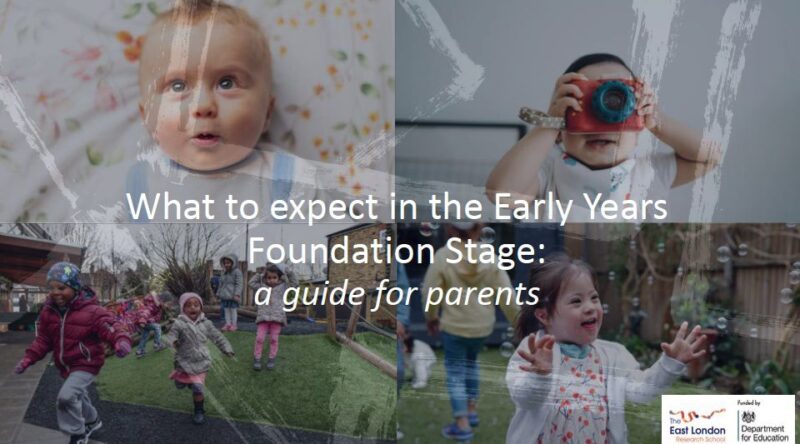
Katherine Richards-Bryant, Early Education Lead, Reach Children’s Hub, UK An excellent education at an inclusive school is necessary but not always sufficient for young people to enjoy lives of choice and opportunity. With the awareness that many students require deeper and more wide-ranging support than a school can provide, the Reach Foundation developed the Reach […]



Further details and resources can be accessed via the Montessori Network.


Catherine Gripton, University of Nottingham, UK Helen J Williams, Freelance Education Consultant, UK Early mathematics pedagogy is about exploration, apprenticeship and sense-making. Exploration: Children and adults enjoy exploring mathematical ideas mentally and physically. Apprenticeship: Children learn through being mathematical with adults, learning mathematical words, ideas and behaviours from them Sense-making: Children make sense of their […]

Chandrika Devarakonda, Associate Professor of Diversity and Inclusion, Faculty of Education and Children’s Services, University of Chester In this video, Chandrika Devarakonda discusses approaches to decolonising and diversifying the curriculum in early childhood education, including: the actions practitioners can take to decolonise and diversify their practice how we can move beyond tokenism the barriers […]

Eleanor Milligan, Lecturer in Education, University of East Anglia, UK The importance of language skills It is well evidenced that children’s language development in the Early Years leads to better outcomes for children. Law et al. (2017) showed that communicative development in the Early Years affected not only later language learning but also academic success. […]

Jackie Gray, Director of Early Years, Outwood Grange Academies Trust, UK This article reflects on the factors that contribute to effective CPD for Early Years practitioners and the approaches used to improve practitioners’ knowledge and expertise across Outwood Grange Academies Trust (OGAT). Specifically, it looks at: how research into effective teaching has informed our professional […]

Professor Sam Wass, University of East London, UK In recent decades there has been a big international shift in education policy (LGA, 2019). It used to be the case that most funding was concentrated on the later stages of education. Increasingly, though, it is now being realised that in fact what children experience during the […]

Sayeh Mariner and Matt Shurlock, Essa Primary Academy, Bolton, UK In this video, Sayeh Mariner and Matt Shurlock discuss maximising engagement in early childhood education at their setting in Bolton where 80 percent of learners have English as an additional language. They talk about: actions taken to maximise engagement and address barriers to learning building […]

Sara Baker, Professor of Developmental Psychology and Education, University of Cambridge, UK In this video, Sara Baker discusses the role of play in early child development, including: how play enables learning myths about play and child development how agency is developed in early childhood. You can read Sara’s article on this topic in Impact.

Christine Parker, Pen Green Teaching School Alliance, UK In this video, Christine Parker discusses schema theory in early child development, including: learning from and extending Piaget’s presentation of schema theory exploring and researching schema theory in practice to support children with complex needs how schema theory can inform provision in early childhood education. […]

Preeti Patel, Director of Education and Community, Montessori Global Education In this interview, Preeti Patel discusses the history and philosophy of the Montessori approach to education, including: the biography and pedagogical ideas of Dr. Maria Montessori the principles of Montessori education the Montessori learning environment in practice. Further details and resources can be accessed […]

This video captures early childhood education professionals talking about their professional learning journeys, including: their motivation and passion for working in early childhood education and the importance of this educational phase routes into the profession and the importance of professional learning what they love most about working in the early childhood education sector.

Lisa-Maria Müller, Chartered College of Teaching This research summary is based on a talk by Prof Kathryn Hirsh-Pasek, which you can access here. Early childhood practitioners have an essential role to play in supporting children’s language development. It is, after all, with them that many children spend most of their waking hours. It is therefore […]

Soizic Le Courtois and Sara Baker, Centre for Research on Play in Education, Development and Learning at the Faculty of Education, University of Cambridge, UK Introduction When children have agency in learning, they are experiencing learning as a participant rather than as a recipient, and as an activity in which they willingly engage rather than […]

Natalia Kucirkova, Professor of Children’s Reading and Development, The Open University When faced with the question of whether children should read on screen or on paper, many adults turn to traditional paper books. Yet when we ask children, we see that e-books motivate children to read, especially those who don’t enjoy traditional paper reading (Picton, […]

Ruth Beck, Manager, Chagford Montessori Nursery School, UK The revised Early Years Foundation Stage (EYFS) (DfE, 2021b) requires practitioners to design a curriculum addressing specific learning and development requirements. This piece investigates the developmental stage theory and sociological theory within the EYFS, with particular focus on the effects of introducing woodwork to an early childhood […]

James Boddey, Director of Busy Bodies Child Care Centre, UK In early 2021, our kindergarten decided to make a concerted effort to be more considerate towards the planet, focusing on how we could do more to reduce our waste, to educate children and families on environmental issues and to make small steps towards a brighter […]















